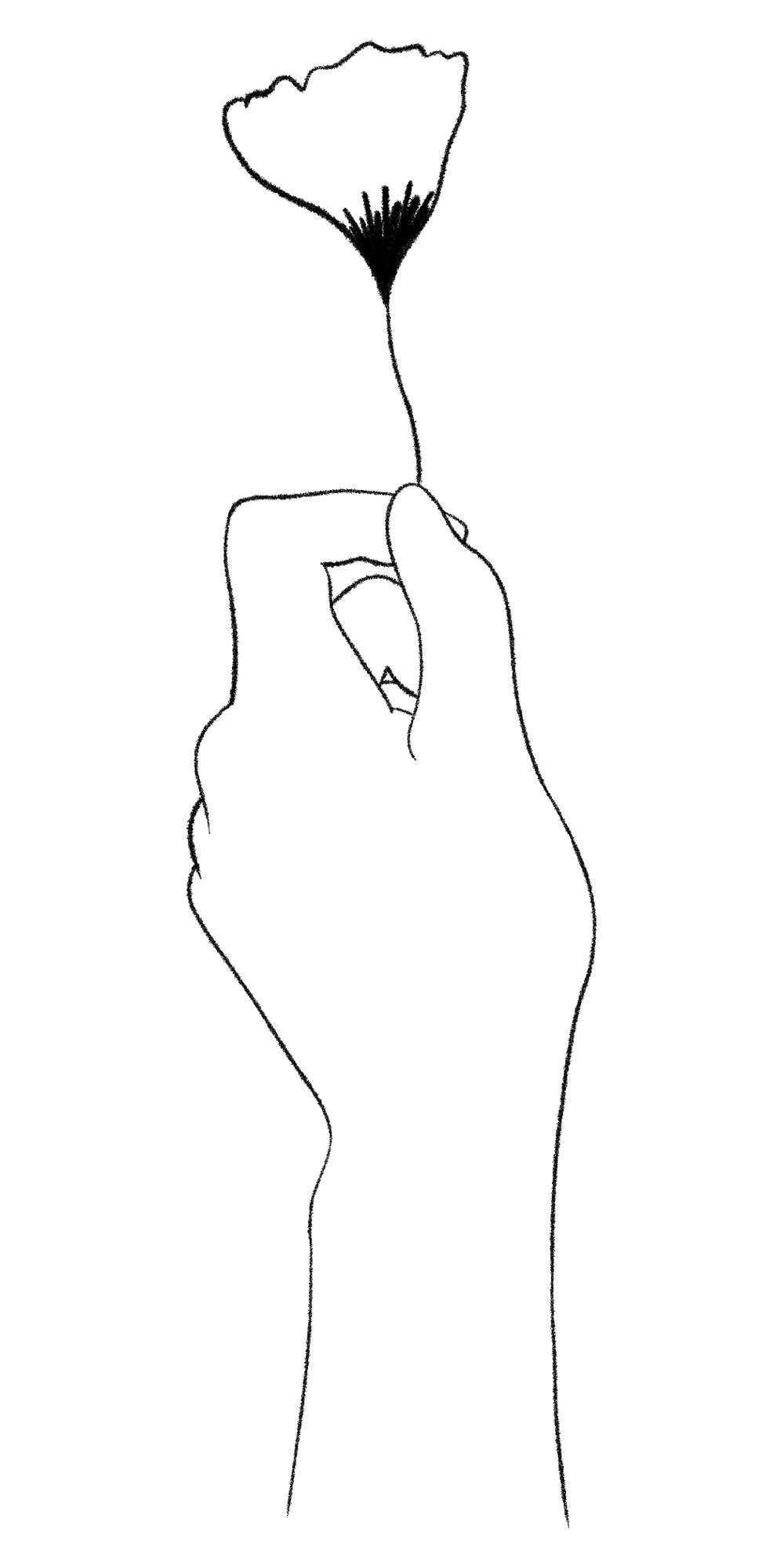This discreet newsletter will teach you how to make him cum hard, give freaky blow jobs & make him scream your name in bed. Click here to get it.

Ah yes, jealousy… that horrible, sinking feeling that can ruin our otherwise perfect relationship. We’ve all been there, wondering if our jealousy is warranted or if we’re just crazy.
Fortunately, there’s no need to stress. I’m going to show you why we feel jealousy, why some jealousy is a good thing (seriously!), how to differentiate between the healthy kind of jealousy and the bunny boiler kind… but most importantly, I’m going to teach you how to deal with jealousy in a healthy, adult way.
Side note: If you are currently struggling to orgasm during sex or masturbation, then you may want to learn about the Easy Orgasm Solution. It will teach you how to have multiple vaginal, clitoral and full body orgasms during sex and masturbation. It works even if you currently struggle to orgasm during sex or when masturbating. You can find out more here.
It’s not always easy, but with the right mindset, you can overcome your jealous feelings.
Why Do Women Feel Jealous?
Humans can feel jealous about different aspects of life, such as coveting a neighbor’s car or job. Usually, jealousy is about wanting something another person has. But jealousy in a relationship is not so much about being jealous of the partner but more about a fear of losing the relationship to “something better.” It often comes down to a partner thinking that other women could offer more to her partner than she can. She might be worried that her boyfriend or husband will want her friend because she thinks the friend is prettier than she is or that he’ll want his female boss because she has wealth and status.
Jealousy has been connected in research to the brain’s attachment system and social bonding [1]. Overall, there are many ideas about jealousy and definitions of different types of jealousy. What is agreed upon is that jealousy is common and normal. Jealousy in close relationships happens in most cultures around the world, while cultures do influence how jealousy is expressed [2].
Can Some Jealousy Be Good?

It turns out that jealousy is actually pretty complex. The real questions to ask might not be about whether it’s okay to be jealous but which type of jealousy is okay. Jealousy is generally seen as a negative emotion and one that can become a poison to relationships. Yet it’s a common human experience, so is there some kind of purpose to it? Could some jealousy ever be a good thing?
Intense Squirting: You can learn how to squirt effortlessly and with intense pleasure if you use the right techniques. If you're interested in learning how to squirt (alone and with your partner), you may want to check out the Squirting Magic guide.
Some people see jealousy as a positive trait symbolizing that the partner cares about the person and the relationship. There is actually some truth to this idea. We can take Berscheid’s idea of what “close” relationships are. She identifies a “close” relationship as when changes that happen in one partner’s life will frequently affect the other partner’s life. These effects are strong and can happen from different types of activities. Also, it’s seen as a close relationship when one partner’s state or activities have affected the other person for a significant amount of time [3, p. 327]. When people have a close relationship like this, jealousy can be seen as an innate reaction to when the relationship becomes threatened by an outsider [4]. This viewpoint sees jealousy as a normal and justifiable response in this kind of relationship when there is the possibility of losing the relationship.
It is argued that jealousy can serve a positive purpose in helping a relationship last. For instance, it might help partners realize when a situation or person is threatening the relationship and encourage them to take steps that strengthen and maintain the relationship. In numerous studies, jealousy has actually been connected with positive experiences that help the relationship last, such as greater feelings of love for the other person and better stability in the relationship [4, 5, 6].
When thought about this way, it can make sense that jealousy is something that evolved with humans as a way to keep relationships intact. It is thought that over time, jealousy has helped people prevent a rival from taking the partner and the partner’s advantages related to procreating. Rather than being a problem that certain people struggle with, jealousy is seen in an evolutionary standpoint as a universal human response that comes from strategies like mate guarding and mate retention that are designed to help a relationship. Nonetheless, this evolutionary theory does point to certain situations that are more likely to create jealousy, such as when one partner can attract other potential partners better than the other [4].
Overall, studies note that jealousy can be seen as a positive trait when there is a real threat to the relationship that the person is responding to, whereas it is unhealthy when the person feels jealous when there is nothing to be jealous over. The first type is “emotional/reactive jealousy,” which is what people more often expressed in a study and encompasses the normal human response to a relationship-threatening situation. The bad type is“cognitive/suspicious jealousy,” which is more about feeling jealous when there is not a need to be [4]. Another type of jealousy described is behavioral jealousy, which is how the person reacts in response to feelings of jealousy. The cognitive type of jealousy has been seen as the most damaging to marital satisfaction, followed by the behavioral and emotional types [7].
Unhealthy Expressions of Jealousy
While it might be normal and sometimes positive to get a bit jealous, this emotion often becomes negative and can lead to problems within the relationship. One study gives the idea that jealousy because of dependency, threats to exclusivity and sexual possessiveness could be adaptive/positive as a reaction, whereas jealousy because of self-depreciation, distrust or competitiveness/vindictiveness are maladaptive/negative [8].
Jealousy can be connected to a lack of trust and to other negative behaviors. For example, jealousy has been connected with intimate partner violence [9]. It could also be connected to cheating. Concerning trust, anxiously attached people felt more cognitive and behavioral types of jealousy when they also felt less trust. Attachment anxiety, or an anxiously attached partner, means that a person has trouble relying on a partner, fears rejection and tends to continuously look for signs of how available the partner is to them. This leads them to read into things, ruminate and have negative thoughts about the future of the relationship [10].
It makes sense for people to react with jealousy to real situations that instigate it, such as a partner being flirtatious or even cheating. On the other hand, suspicious jealousy is seen as an unhealthy expression of jealousy because the person feels jealous even though there are not any situations to encourage the jealous reaction. This tends to go along with other negative emotions related to the relationship, such as anxiety, insecurity, and doubt [4].
Unhealthy jealousy often goes along with negative personality traits within the person. For example, one study found that people with high levels of psychopathy can be more likely to have cognitive jealousy, especially when they also have low self-esteem [11].
He will lust for you: It's easy to make a man desire you and turn him on, when you use the right kind of dirty talk. If you'd like to learn how, then you may want to check out the Wild Dirty Talk Guide. Inside, you'll learn how to confidently talk dirty along with the lines and phrases that work best for making him deeply desire you.
What Are Some Terrible Ways of Dealing With Jealousy?
Strong and healthy relationships are based on respect and trust [12]. However, some folks seem to think excessive jealousy should also play a role.
Some ways that women react to jealousy can only make things worse and can be very unhealthy behaviors. When the woman becomes abusive, controlling and possessive, these are bad signs. Also, the person might have double standards that she can spend time with other men while her partner is not allowed to spend time with other women [13].
Other poor ways to handle jealousy are to follow behaviors that give in to it and fuel it. For example, the woman might check the partner’s phone, pockets, and car for signs of a threat to the relationship. The partner might not believe the other one and could become psychologically or physically abusive. These kinds of behaviors are more likely in anxiously attached people [10].
When Should a Woman Try to Get Past Jealousy?

Whether or not jealousy has some positive purposes, it can end up having negative effects on a relationship especially if it is consistent, unwarranted or connected to unhealthy behaviors. A meta-analysis of different studies looked at how jealousy and relationship quality are connected and found a negative relationship between jealousy and relationship quality, with more significant results from anxious jealousy [14].
Rather than let jealousy take over her life or give in to unhealthy expressions of it, there are ways for a woman to work on the emotion and overcome it. As mentioned, it tends to be okay and natural when someone reacts with jealousy in a moment that warrants it. But it’s worth working on the emotion when a person continuously feels the emotion, feels it when it’s not warranted or feels like she can’t handle the emotion. Also, Alabama Public Health notes that feeling jealous without cause or taking actions with the goal of making the other feel jealous are not signs of love or a healthy relationship [15].
How to Overcome Jealousy
How can a woman handle jealous feelings better? For one, the way she expresses the jealousy might help the relationship. A study found that the partner responded better when the jealous person used positive communication than when they used negative communication and manipulation attempts [16]. A woman could talk to the partner about how she feels, discuss the situation that brought up the feeling of jealousy and consider with her partner whether there is any merit to that feeling in regards to that situation. Also, it’s good to listen carefully to what your partner is saying and note how they are responding to what you’re sharing, rather than just reacting so that the conversation goes both ways [17].
To handle jealousy, Michigan State University Extension recommends a person recognize the fear and anger of jealousy and try to understand why she is feeling this way each time she feels jealous. So you could try to change your ideas when there is no reason for jealousy. She could realize that you’re reading into a situation when the reality might be different. Also, it might help to consider how your jealousy is affecting your partner in the relationship. You could think of personal reasons for feeling jealous and observe the kinds of situations that bring up the jealousy [17].
There can also be solutions for certain types of people and types of jealousy. For example, a study found that touch in the relationship helped protect against jealousy for anxiously attached people [18]. In marriage, strengthening the commitment and trust in the relationship offers a solution to jealousy [19].
While some people may have success working on the jealous feelings on their own, some may benefit from therapy. This is something that partners can work on together in couples therapy [20]. You or your partner could also work on your personal problems that contribute to the jealousy in individual therapy. Cognitive-behavioral therapy is one type of therapy that could be used for handling jealousy, as well as mindfulness and acceptance practices that help people create some separation between themselves and the jealous feelings [21].
Resources
If you want to learn more about why you might feel so jealous, check out this article by clinical psychologist Lisa Firestone, Ph.D. She gives a psychological perspective on the topic.
Is your partner the one who’s jealous? If you’re trying to understand why he’s jealous and how to handle it, read this article by David Ludden, Ph.D.
Read this Pew Research Center chapter that includes information on how social media can fuel jealousy in teens. This research could be helpful even if you’re not a teen!
Want to stop feeling jealous? These are some steps to focus on.
FAQs on Dealing With Jealousy

Quick Warning: This video is wild... However, it will teach you how to give blow jobs that will make your man cry with pleasure and become sexually addicted to you. If you are interested in having him completely obsessed with you and only you, then check out the detailed (& explicit!) oral sex tutorial video here.
FAQ #1: Should I keep my jealousy bottled up?
It’s seen as okay to feel jealousy related to a situation that could threaten a relationship. But if you’re feeling jealousy all the time or expressing unhealthy behaviors because you feel jealous, these could be signs that there is a problem worth addressing through communication, therapy or another solution, such as strengthening or ending a relationship that has a lack of trust.
FAQ #2: Nothing I do seems to get rid of my jealousy. Is there a solution?
When you are not able to overcome jealousy, that probably indicates that another issue is going on. It’s possible that you have a problem with self-esteem, are in an unhealthy relationship or have other concerns that are contributing to jealousy. When you are unable to handle jealous feelings, you should consider seeking therapy, which can address the underlying problems associated with the jealousy. Therapy can help provide individualized advice about the situation and your own underlying issues that need to be addressed.
FAQ # 3: Is it weird that I don’t feel jealous?
Since jealousy is such a normal emotion to have, it might seem strange not to feel jealous ever. A lack of jealousy could depend on many factors. It’s possible that it’s an indication that the relationship is not very strong. On the other hand, it might mean that you are pretty secure in yourself and the relationship or are a trusting person. Or perhaps your partner never gets into situations that would flare your jealousy. The reasons for the lack of jealousy would depend on the person and the situation. Also, it can be healthy to not feel as much jealousy when the relationship is more established, and you feel like you can trust the other person.
Even though experiencing jealousy is normal and can sometimes be warranted, it’s still a difficult and frustrating emotion to feel. This is especially the case when it puts a strain on the relationship, when the person can’t get past the jealousy or when it’s not warranted. Knowing more about jealousy can help women understand it and work to overcome it. Certain strategies can help someone work on jealousy, and therapy could help in situations with ongoing jealousy that the person cannot deal with.
Possibly useful: If you want to give your man (& yourself) back-arching, toe-curling, screaming orgasms that will keep him sexually addicted to you, then you'll find them in my private and discreet newsletter. You'll also learn the 5 dangerous & "dumb" sex mistakes that turn him off and how to avoid them. Get it here.
Orgasm Every Time. Easily. Here’s How...
I want to tell you about my friend Karen.
Karen came to me one day. She was hysterical.
She told me that her marriage was falling apart because she and her husband didn’t have satisfying sex.
Every time they were intimate, Karen was faking her orgasms. It turns out she couldn’t orgasm during sex.
In fact...
She never had an orgasm in her entire life. Not one!
This left her feeling embarrassed and ashamed.
Even worse...
She stopped wanting sex with her husband, slowly driving him away, and...
Almost destroying her marriage. Thankfully...
It turns out that there is a simple solution for women who struggle to orgasm, whether you are having sex or masturbating.
I shared the process with Karen.
After she followed the simple process, she could barely come to terms with how...
Quickly and dramatically her sex life changed.
We met up a few months later and...
She would not stop talking about it,
“I thought I was one of those women who couldn’t orgasm. I used to think I was ‘broken’ and ‘unfixable.’ This saved my sex life, and that saved my marriage.”
Even if you currently struggle to orgasm during sex or while masturbating, this process will also work for you.
And best of all, you don’t need to do anything weird or uncomfortable to start having the best orgasms and sex of your life.


After reading this article, I can see how I sometimes allowed jealousy into my relationship hardcore. My only thing is, what if your husband is leaving in the middle of the night and not telling you where you are going then you come to find out he stayed the night at another woman’s house? The woman is married to a bisexual man and my husband has cheated on me with both women and a man in the past before marriage. One of his “sexual fantasies” is having a threesome (one female, two males), which I would never agree to, and it makes me wonder if he is fulfilling that fantasy with her and the husband. Would me being hardcore jealous in that situation make me be the crazy one?
I’ve been dating the guy for just over a year. There have been a couple of times ladies have text him and he’s gotten into sexual chats with them. That bothers me a lot, but what bothers me the most is he doesn’t bother to tell them that he is actually involved with someone. We are an older couple, I’m 53 (widowed), he is 60 (2x divorced). I care for him a great deal, he has told me several times that he loves me and that it’s a different feeling than he’s ever felt. I’m confused and not sure how to deal with it.
Sounds like you need to have a chat with him.
It is great to have men jealous of your success especially married men and men with girlfriends who would flirt with you – force kiss you in a parking lot, molest you and erect infront of you in the office environment. I know I am doing something right. … and they wonder why I am still single. Maybe guys are still stuck acting like boys?
I am 45 divorced after a 26 yr marriage . I have had my 2nd boyfriend since my husband for over 2 yrs now . He is very flirtatious with what he calls his fan club . I Love him but I have only had 9 relationships my entire life. I met my ex husband at 18 was in a relationship with him at 19. We were inseparable for 18 yrs . He cheated with a friend of mine they have a child conceive during my marriage . My boyfriend now was perfect for 3 MONTHES then he went out ended up with his ex fucked her. He lied about it all for mothes . He would go out with her alone cause there friend she says the screwed all the time! I’ve had multiple woman message saying they slept with him. He says they’re lying and still communicated with them . He says he has never cheated but 1 time but every weekend says he needs his time and it always ends up being with another woman ! Gosh wrighting this is really making me feel like a idiot . The men I’ve dated are scum. He says he never does anything wrong it’s all me ! I am very jelouse . I’ve caught him sexting . Dam I’m a idiot
If you’re asking if it makes you seem crazy worrying about worrisome shit mind you.. because he said you are. Then tell him to get lost. If you just think you are because this type of hurt does make us feel deranged inside. It only means you’re human. And you have a sensitive caring loving heart that hurts because he’s choosing the shady life over making your happiness his priorities. You are not “crazy” in the fact you worry about the shit hes doing to you. But more so for sticking it through with him and expecting it not to make you feel psycho. Know what im saying?